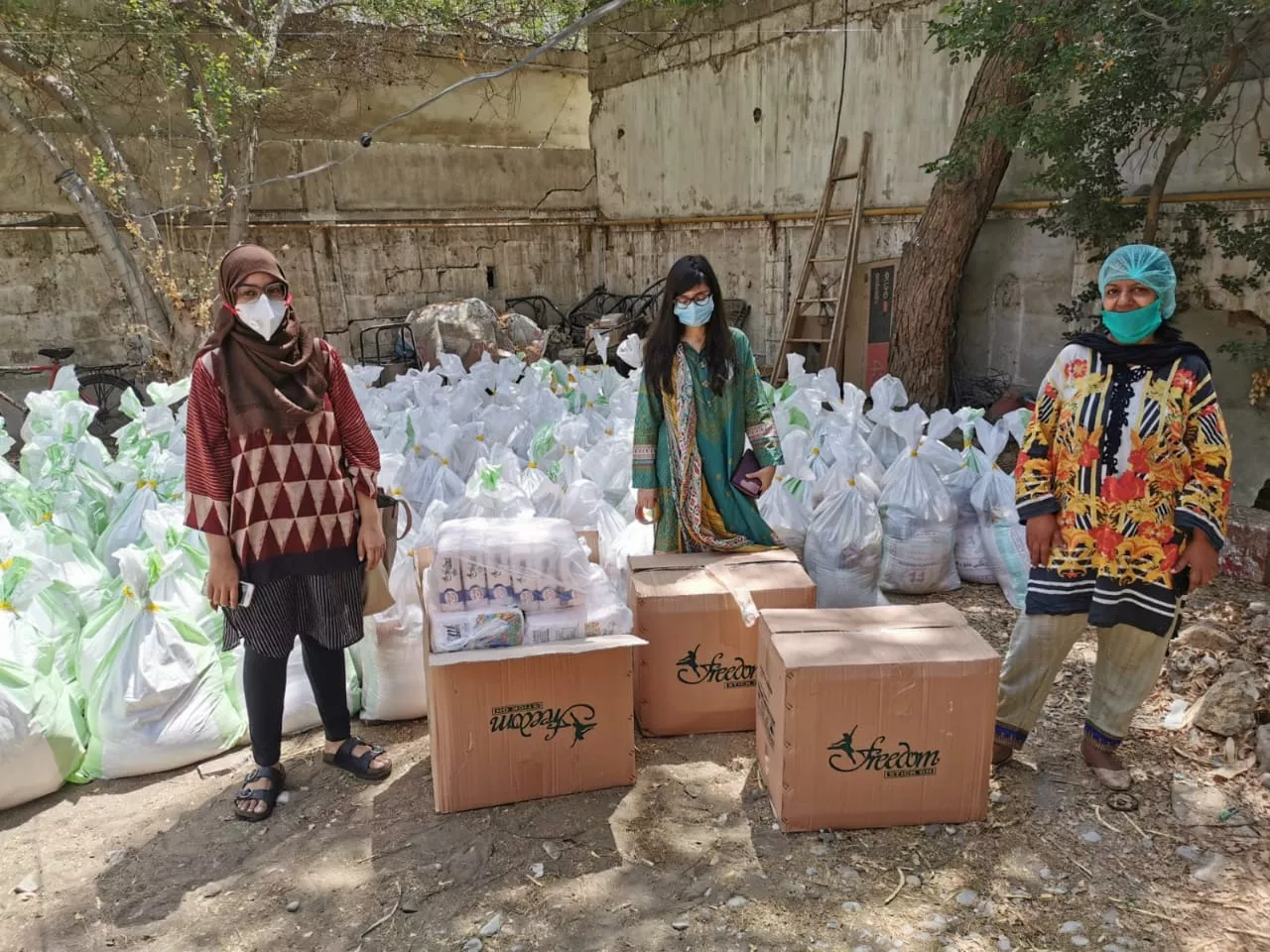In lockdown, sanitary napkins become a luxury
Over 28 million women across Pakistan may be left without access to menstrual products, says HER Pakistan co-founder
KARACHI: Where coronavirus and the ensuing lockdown virtually brought life to a standstill for most, women, particularly those hailing from low-income backgrounds, struggled with an additional dilemma. With shops shuttered, where were they to purchase sanitary pads?The haunting question stared 27-year-old Bano, a resident of Orangi Town, right in the face, as it did several others. “Why couldn’t menstrual periods come to a halt like everything else?” she voiced her thoughts, irked and exasperated. Then, exhaling deeply in an attempt to calm her nerves, she said it was getting harder by the day for her to buy sanitary pads. “There is a shortage so they are not easily available and also, no longer easily affordable,” she explained.
Bano had been working as a salesgirl at a shopping mall until the lockdown struck her and her family. Badly. Though her father continued his job at a bakery, despite the lockdown, “he doesn’t earn enough to support a family of seven alone,” she lamented. “How can I then ask him for money to buy sanitary pads?”
Sharing Bano’s misery is Saima Aziz, who was deployed as a security guard at a cinema until the lockdown.
Covid-19 not transmitted through sex, study suggests
Aziz had long used cloth pieces in place of sanitary pads but opted for the latter when one of her friends told her how unhygienic using cloth was. But “now they are nowhere available,” she said, adding, “I assume most affluent people bought them in bulk.”
She is now back to using “unhygienic cloth pieces.”
A helping hand
However, there are some who are mindful of the ordeal these women are facing and are taking practical steps to allay their troubles.
Sumaira Lokhandwala and Sana Lokhandwala, sisters and co-founders of non-profit organisation HER Pakistan, have launched a Covid-relief campaign aimed at extending support to daily-wage workers in dealing with menstruation in this difficult time.
Under the umbrella of HER Pakistan, they have been working to educate women about menstruation since 2018 and from the onset of the lockdown, have distributed sanitary pads among more than 1,400 women in Lyari, Gharibabad, Gulzar-e-Hijri, Khuda Ki Basti, Yashua Gardens in Surjani Town, Deaf Reach School and Christian localities in Lahore.
Explaining the need for the initiative, Sumaira said the lockdown had disrupted the supply of menstrual health products and with no jobs, it was near impossible for several daily-wage earners to afford sanitary pads.
How will the coronavirus pandemic change Ramazan for Muslims?
The shortage of supply and women buying sanitary pads in bulk was confirmed by a retail store owner who asked not to be named.
Sumaira expressed the fear that if the restrictions remained in place for a long time and the situation persisted, over 28 million women of reproductive age in Pakistan may be left without any access to menstrual health products.
A tough choice
“It comes down to either buying bread for their children or sanitary pads for themselves,” added Sana. “No one should be made to choose between the two. We need to prioritise women’s health and their needs,” she stressed.
She deplored that authorities in Pakistan were yet to acknowledge that the provision of health education and menstrual health products were basic necessities. In this regard, she cited the example of Scotland, which she said was on its way to become the first country to end period poverty – a concept that relates to the availability of free sanitary products, including menstrual health products, to women of all ages in the country. In fact, free menstrual products are already available to high school, college and university students in Scotland, she related.
“We have a long road to travel until we reach there but at present, the need is to understand that our response to the pandemic must consider menstrual health needs and concerns,” underlined Sana.
‘Making light of the matter’
According to Mahnaz Rahman of the Aurat Foundation, whenever the matter is brought to the table, it is taken lightly. “But it is a genuine issue,” she said, stressing the need for involving women in decision-making at the state level so that women’s health issues were duly addressed.
Punjab warns people not to give donations to banned outfits during Ramazan
Women’s health problems, particularly those pertaining to menstrual health, have been swept under the carpet for a long time, which is evident by Rahman’s experience of visiting flood-affected areas in 2010.
“There was a dire need of sanitary pads,” she recalled.
Solutions
Demanding that the government address women’s health issues, the same way it was tending to food and ration provision, on an urgent basis, Rahman stressed that in the current situation, the government should provide sanitary pads at doorsteps.
“By engaging women health workers in the distribution of ration and relief activities and adding sanitary pads in rations bags, it could do so,” she said.
Similar views were echoed by Sindh Women Development Minister Shehla Raza, who said, “It is a genuine issue. As ration and food, sanitary pads, too, are an essential commodity for women.”
She assured that the government was devising a strategy to tackle the shortage of the item, saying that she had directed women development secretary and other department officials to take steps for resolving the issue.


COMMENTS
Comments are moderated and generally will be posted if they are on-topic and not abusive.
For more information, please see our Comments FAQ